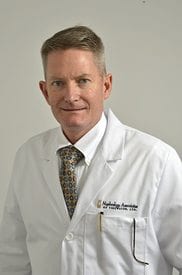Advancing kidney health through research and education
Our Mission:
The Center focuses on the diagnosis and treatment of families that have inheritable kidney diseases. Many diseases have similar signs and symptoms. This is particularly true for diseases that are felt to be uncommon. The basis of successful therapy is the proper diagnosis. Once the correct diagnosis is confirmed targeted therapies can be introduced and response monitored.
The Center’s goal is to advance the understanding of congenital kidney disease through research and education. New diagnostic tests and therapies are continuously under development for many diseases. Participating in research protocols advances our understanding of a disease and the recognition of improving therapies. Advancing medical science requires providers with inquisitive minds and patients with a pioneering spirit.
The Center will offer genetic testing when indicated and counseling on the results. Not all inherited diseases require genetic testing to confirm the diagnosis. But when genetic testing is required to confirm a disease, counseling is required to understand the implications.
Familial kidney disease may be present in only one member of the family, but the implications of a congenital disease affect all of the family members. Some diseases can result in milder forms of disease in undiagnosed family members. The concerns of passing along a disease to the next generation must be thoroughly discussed within all affected families.
Our Focus:
Congenital kidney diseases that are our focus
Polycystic Kidney Disease: This autosomal dominant disease is the most common congenital disease in the world. The disease causes kidney failure and can begin to affect people between the 20’s and 50’s.
Apolipoprotein L-1: This recently discovered autosomal recessive disease affects people of African heritage and can cause kidney failure.
Alport’s Syndrome: This is a X-linked genetic disease that can cause deafness and kidney failure in affected men.
Fabry’s Disease: This X-linked lysosomal storage disease that can cause kidney failure along with pain in the extremities and abdominal pain.
Cystinosis: This autosomal recessive disease results in cysteine build up in lysosomes and can cause kidney failure.
Barter’s Syndrome: This autosomal recessive syndrome that can cause low blood pressure and electrolyte abnormalities.
Gitelman’s Syndrome: This autosomal recessive can cause electrolyte abnormalities and joint pains.
Liddle’s Syndrome: This autosomal dominant disease can cause hypertension and electrolyte abnormalities.

Thomas McCune, MD FACP
Dr McCune returned from his fellowships and joined the practice in 1991. He has been active with the Kidney and Pancreas Transplant program at Sentara Norfolk General Hospital throughout his time in the practice. He has been actively involved with teaching Medical Students and Resident Physicians. He continues to lead research projects in all aspects of Nephrology. He has published over 25 scientific articles and book chapters. He has been recognized by many organizations and his peers for clinical care and academic achievements. He is a retired Colonel in the Army National Guard, Chair Division of Nephrology at EVMS, and Program Director for Nephrology fellowship. He sits on the board of Hope House Foundation.
Please fill out the form below to contact us. We will respond shortly.
"*" indicates required fields
Please do not send confidential information through this contact form. Someone will contact you directly to collect any needed additional information.
For existing patients click HERE to visit our Patient Portal
Location: Fort Norfolk Plaza

301 Riverview Avenue
Suite 600
Norfolk, VA 23510
757-627-7301
Copyright © 2023 | Nephrology Associates of Tidewater, LTD.


